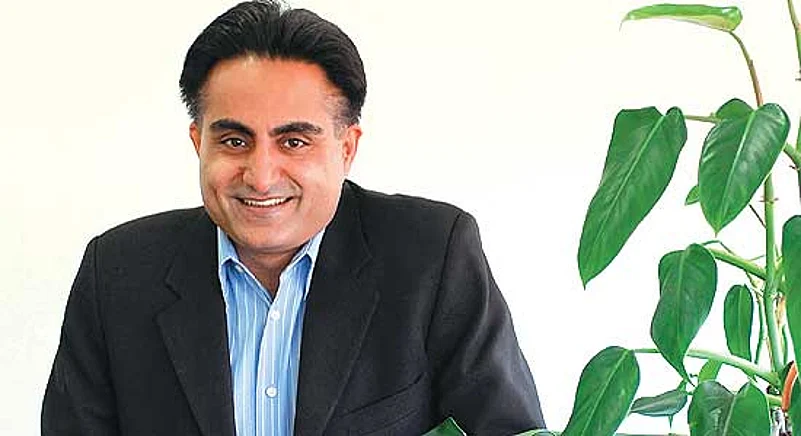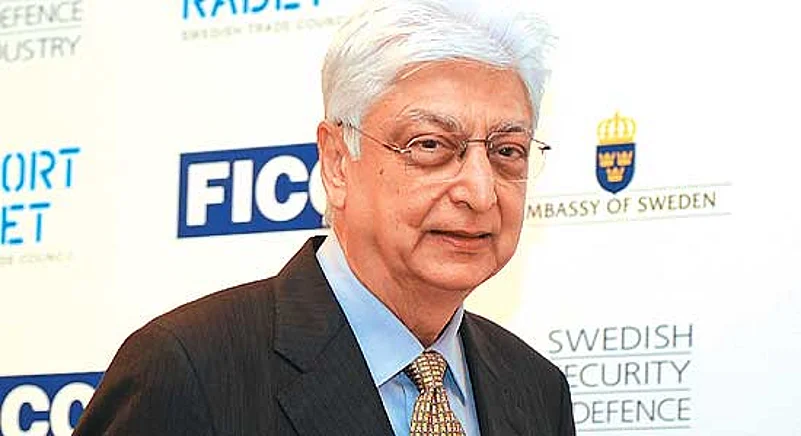It was a disheartening beginning. When Avnish Bajaj relocated to India to start internet auction portal baazee.com in 2000, he couldn’t find office space. No one was willing to believe in a company with no experience. There was no infrastructure or mentors with whom startups could share their experiences. After selling the portal to eBay in 2004, Bajaj decided to set matters right—personally. He invested his money in seeding startups and eventually set up the Rs 1,500-crore funding firm Matrix Partners India. Yo-China, FIITZEE and ITZ Cash cards are some of the startups he mentored. “Watching someone trying to set up a business, entrepreneurs see glimpses of their own struggles,” he says. “It gives you a sense of legacy.”

Avnish Bajaj, Matrix Partners India
Seeded: fiitjee, Seventymm, Yo-China
“Entrepreneurs get a kick out of growing a business with its operational uncertainties.”
Bajaj is part of a new breed of corporate leaders who, after achieving milestones in their careers, have entered the private equity and venture capital sector. The aim: fund startups but also use their experience to make these freshers stand on their feet. Instead of investing in their own companies or setting up new ones, these high net worth individuals are ready to fund new ideas knowing well the risks are high.

Raman Roy, Indian Angel Network
Seeded: Stelay Technologies, Robhatah Pvt. Ltd
“I wish I had mentorship when I started. I had to fall and learn.”
While venture capital and private equity has been booming in India for the past five years or so, this new stream is moving away from the business and fund-driven strategy to a personality-driven one. Here, they are adding their name and experience along with money to incubate new ideas. Says Raman Roy, CMD, Quattro BPO Solutions: “We felt while there was a lot of talent in India, there was not enough mentoring, so it was important to bring in mentoring along with money.” Roy has invested in six companies through the Indian Angel Network.

N.R. Narayana Murthy, Catamaran Investment
Yet to invest
“Directing financial wealth and also handholding is one way of giving back to society,” Renuka Ramnath, CEO, Multiple Alternate Asset Management.
Last month, Infosys founder N.R. Narayana Murthy announced his venture fund Catamaran worth about Rs 600 crore. After founding Infosys in the early 1980s, this is probably the biggest venture in his life. Others in this space include Azim Premji (who has a $1-billion fund Premji Invest), Quattro’s Roy, Smile Interactive’s Mahendra Swarup and Mahesh Murthy’s Seedfund.
What drives these people to put in their hard-earned money (and risk their reputation) in businesses where the fatality rates are high? Some see it as an ego-driven quest to spawn one’s successes in setting up a new enterprise. Or is it another way of donating to charity but with a hope of getting returns? It is, as a corporate-watcher put it, fashionable to be seen as kingmaker now.
Launching his fund, Murthy said he wanted to be a catalyst for entrepreneurship. But private equity veteran Renuka Ramnath, currently founder and CEO, Multiples Alternate Asset Management, feels people with strong backgrounds in a business have their own motivations to enter the PE space. “Everybody talks about writing cheques for charity. Quite honestly, directing financial wealth towards the creation of wealth with not just startup capital but also handholding is one way of giving back to society,” she says.

Azim Premji, Premji Invest
Seeded: Carnation Auto, Cicada Resorts
“I wrote to him with my business plan and promptly got a reply showing interest,” Jagdish Khattar, CMD, Carnation
Others feel after being at the top of their respective companies, most business leaders are used to seeing things go their own way. That insatiable urge can only be fulfilled with a fresher on a monetary leash where they have full control over how the company functions. Obviously, the name helps open a lot of doors. Says a mentor with a private equity firm: “If it is a known face in the corporate sector, a lot of things happen much faster as there is a comfort level that officials have with these people. In business, networking works and that is what these people bring with them apart from their experience and money.”
But there’s no denying many in corporate India see seeding entrepreneurs as acceptable now. “It is a natural progression for professionals with successful careers to turn full-time mentors at a later stage of their careers,” avers Bharat Banka, MD & CEO, Aditya Birla Private Equity. It also helps that the global economic slowdown has dried up plum jobs in the US and Europe. A lot of professionals have been forced to look inwards to start something new. “So they are looking at starting companies and VCs and PEs are looking to fund them readily,” avers Mahesh Murthy, who himself has a penchant for tech startups.
While startups in the technology sector have been a favourite of venture capital and private equity firms, this time, the new leaders are expanding their approach to services and other areas as well. Narayana Murthy’s Catamaran, for instance, will look at startups in healthcare and retail apart from technology. Mahendra Swarup, who was with Pepsi and headed Times Internet before coming into Smile Interactive, has broadbased his reach to look at companies in sectors other than technology as well. “Earlier, when banks and large funding houses came in, they valued a collateral that an entrepreneur could give, not the venture. That is where we come in,” says Swarup.

Mahendra Swarup, Smile Interactive
Seeded: Quasar, Tyroo, Zoomtra, Reverse Logistics, Squad Digital
“Nine out of 10 managers aspire to be on their own.”
Making a success of a startup isn’t easy. In fact, for the few successes, there are many more firms that are languishing, far from the spotlight. But that’s part of the game. For example, Swarup’s firm has invested in six startups and has already found buyers for two: WPP has picked up internet advertising agency Quasar Multimedia and Yahoo invested in ad network Tyroo. Another recent startup, Carnation Auto, promoted by former Maruti head Jagdish Khattar with a Rs 80-crore investment from Premji Invest, is seen to have got off to an impressive start.
But Rajesh Jain, founder and MD of Netcore Solutions, who has invested in over 10 startups, remains sceptical. Says he: “We’re missing out on creating a deep-rooted startup culture in India because we don’t have the first two stages of the investing pipeline—angel and first-round investing. What we do have are plenty of Indian funds willing to invest ideally into companies that are profitable and looking for growth capital.” Where does that leave pure startups, he asks.
The lucky few aren’t complaining though. Hitendra Chaturvedi, promoter of electronics recycling firm Reverse Logistics Co, which got seeded by Swarup, puts the basic need on the table: “I wanted someone with experience and who can be a sounding board.” The reality is despite limited availability of such mentors, many startups now have a shot of getting what they need at the beginning—money as well as loads of experience in their field from the leaders themselves. That’s the good news: the beginning of a more deep-rooted entrepreneurial awakening from within.
By Arindam Mukherjee with Arti Sharma in Mumbai


























